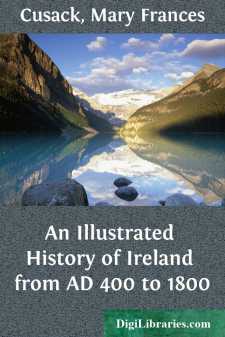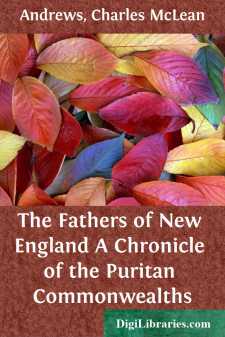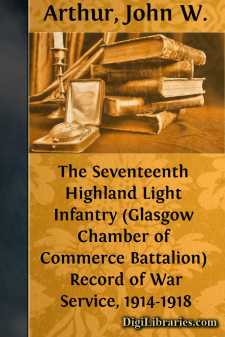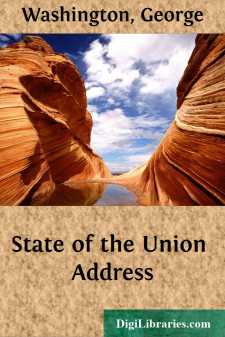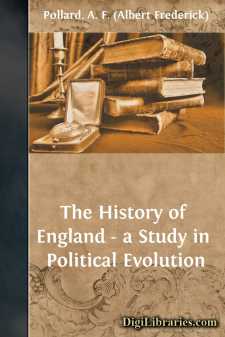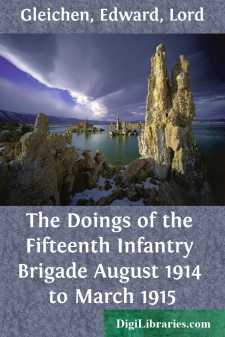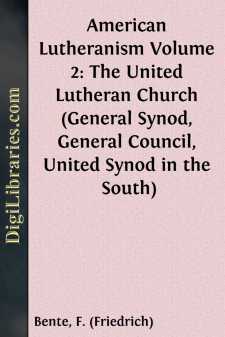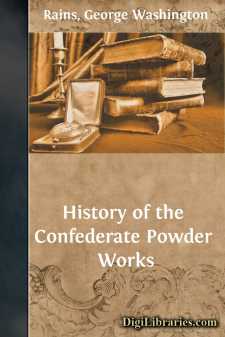History
- Africa 30
- Americas (North Central South West Indies) 50
- Ancient 68
- Asia 58
- Australia & New Zealand 8
- Canada 41
- Caribbean & West Indies 1
- Civilization 20
- Eastern Europe 12
- Europe 310
- Expeditions & Discoveries 60
- General 77
- Historical Geography 1
- Jewish 9
- Latin America 3
- Medieval 8
- Middle East 13
- Military 248
- Revolutionary 8
- Study & Teaching 5
- United States 353
- Western Europe 56
- World 13
History Books
Sort by:
PROCLAMATIONS. BY THE PRESIDENT OF THE UNITED STATES OF AMERICA. A PROCLAMATION. The following provisions of the laws of the United States are hereby published for the information of all concerned: Section 1956, Revised Statutes, chapter 3, Title XXIII, enacts that— No person shall kill any otter, mink, marten, sable, or fur seal, or other fur-bearing animal within the limits of Alaska Territory or...
more...
CHAPTER I Celtic Literature—Antiquity of our Annals—Moore—How we should estimate Tradition—The Materials for Irish History—List of the Lost Books—The Cuilmenn—The Saltair of Tara, &c.—The Saltair of Cashel—Important MSS. preserved in Trinity College—By the Royal Irish Academy—In Belgium. he study of Celtic literature, which is daily becoming of increased importance to the...
more...
THE COMING OF THE PILGRIMS The Pilgrims and Puritans, whose migration to the New World marks the beginning of permanent settlement in New England, were children of the same age as the enterprising and adventurous pioneers of England in Virginia, Bermuda, and the Caribbean. It was the age in which the foundations of the British Empire were being laid in the Western Continent. The "spacious times of...
more...
by:
John W. Arthur
I.—FORMATION AND HOME TRAINING. THE NATION'S CALL TO ARMS. Great Britain declared war on Germany on August 4th, 1914, and almost immediately the combatant strength of its Regular Army was on service and the great bulk of that gallant force engaged in those fierce actions against odds which marked the early fighting. The War Office was quickly alive to the fact that the Regular Army could not...
more...
Fellow-Citizens of the Senate and House of Representatives: I embrace with great satisfaction the opportunity which now presents itself of congratulating you on the present favorable prospects of our public affairs. The recent accession of the important state of North Carolina to the Constitution of the United States (of which official information has been received), the rising credit and...
more...
CHAPTER I THE FOUNDATIONS OF ENGLAND 55 B.C.—A.D. 1066 "Ah, well," an American visitor is said to have soliloquized on the site of the battle of Hastings, "it is but a little island, and it has often been conquered." We have in these few pages to trace the evolution of a great empire, which has often conquered others, out of the little island which was often conquered itself. The mere...
more...
CHAPTER I. War With Russia: Pultusk. Poland and the Poles — The Seat of War — Change in the Character of Napoleon's Army — The Battle of Pultusk — Discontent in the Grand Army — Homesickness of the French — Napoleon's Generals — His Measures of Reorganization — Weakness of the Russians — The Ability of Bennigsen — Failure of the Russian Manœuvers — Napoleon in Warsaw....
more...
by:
Edward Gleichen
In accordance with the order received at Belfast at 5.30 P.M. on the 4th, the 15th Brigade started mobilizing on the 5th August 1914, and by the 10th was complete in all respects. We were practically ready by the 9th, but a machine-gun or two and some harness were a bit late arriving from Dublin—not our fault. Everything had already been rehearsed at mobilization inspections, held as usual in the...
more...
MERGER. 1. Origin of the New Body.—On April 18, 1917, at Philadelphia, the Joint Quadricentennial Committee, appointed by the General Synod, the General Council, and the United Synod in the South to arrange for a union celebration of the Reformation, decided that the merging of the three affiliated general bodies would be "the fittest commemoration and noblest memorial of the four-hundredth...
more...
In accepting your invitation to address you on the general history of the Confederate Powder Works, I do so with some hesitation, on account of my close personal connection with a subject which absorbed my thought, time and energies. In the history of a war we find, generally, but little reference to the manufactories engaged in the preparation of material; they had been previously established, and...
more...



